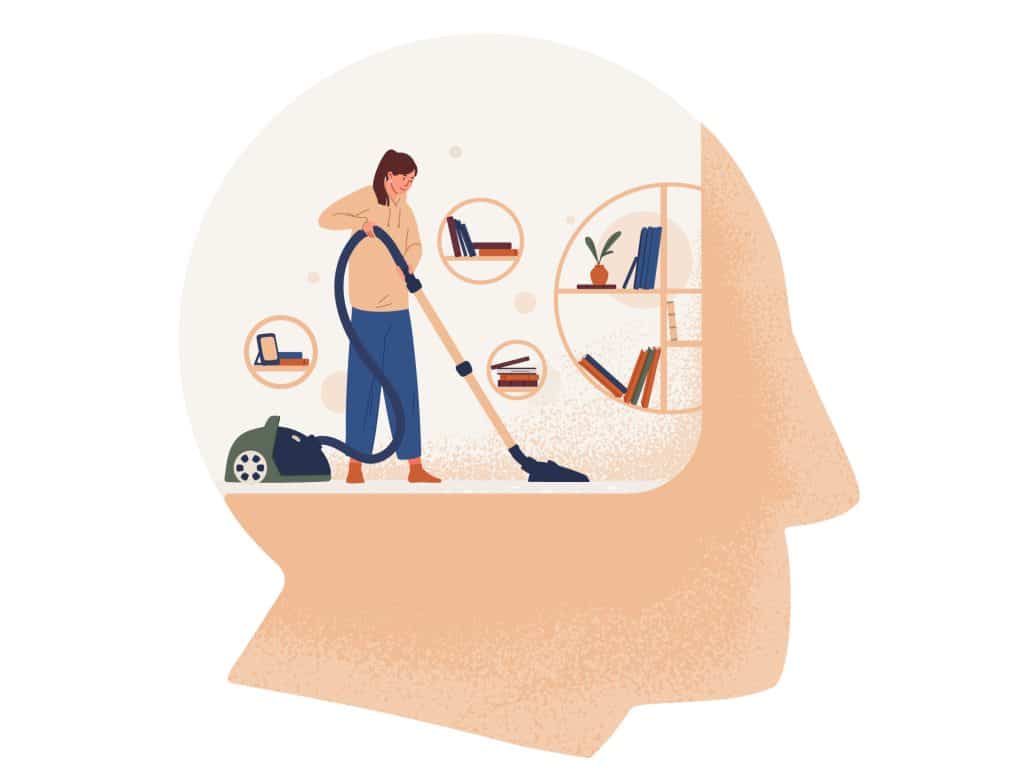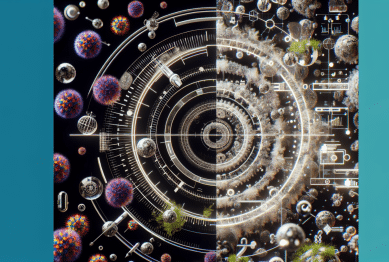In the fast-paced world we live in, it’s easy to let mental clutter accumulate, which can overwhelm us and affect our decision-making abilities. But what if the key to better problem solving lies not in gathering more information, but in clearing the mental fog? Decluttering your mind can significantly improve your problem-solving skills by allowing you to think more clearly, focus better, and make decisions with greater ease. This article delves into the importance of mental clarity and offers actionable steps to help you achieve it, all while enhancing your ability to solve problems effectively.

The Science Behind Mental Clarity and Problem Solving
Mental clarity is crucial for effective problem-solving. According to studies in cognitive psychology, cluttered thoughts can impair our decision-making process by consuming cognitive resources. When our minds are filled with distractions or unresolved issues, it becomes harder to think critically and identify the best solutions to problems. On the other hand, a decluttered mind allows us to focus on the task at hand, making it easier to evaluate options, analyze consequences, and come up with innovative solutions.
Research also suggests that mindfulness practices, which are closely linked to mental decluttering, can enhance our cognitive abilities. A study by Zeidan et al. (2010) found that just a few minutes of mindfulness meditation could improve attention and working memory, both of which are essential for problem-solving. By reducing mental distractions, we can enhance our ability to focus, process information, and make decisions more effectively.
How Mental Clutter Affects Problem Solving
Mental clutter manifests in many forms: scattered thoughts, constant distractions, emotional baggage, and even anxiety about the future. This clutter not only impacts our mood but also hinders our cognitive functioning. Here are some ways mental clutter interferes with problem-solving:
- Reduced Focus: When your mind is cluttered with irrelevant thoughts, it’s difficult to concentrate on the task at hand. The brain can’t focus on one thing for too long, leading to inefficiency in processing information and finding solutions.
- Increased Stress and Anxiety: Mental clutter is often accompanied by feelings of stress or anxiety. When you’re overwhelmed, it’s hard to think clearly. Anxiety can prevent us from making rational decisions, as the fear of failure or making the wrong choice clouds our judgment.
- Poor Memory and Recall: When we’re mentally cluttered, our brain is less efficient at storing and retrieving information. This can lead to forgetfulness and difficulties in applying previous knowledge to solve new problems.
Strategies to Declutter Your Mind and Improve Problem-Solving
Fortunately, there are several proven techniques to help declutter your mind and enhance your ability to solve problems. By practicing these methods regularly, you can create a mental environment that fosters clarity, creativity, and effective decision-making.
1. Practice Mindfulness Meditation
Mindfulness meditation is one of the most effective ways to declutter your mind. It trains you to focus on the present moment, which reduces the impact of distractions. Regular mindfulness practice has been shown to improve attention, reduce stress, and enhance cognitive flexibility (Zeidan et al., 2010). A few minutes of deep breathing or guided meditation each day can help clear mental fog and improve your focus, ultimately leading to better problem-solving.
2. Organize Your Environment
Physical clutter often translates into mental clutter. If your workspace or living environment is disorganized, it can make it harder to focus and think clearly. By taking a few moments each day to tidy up your space, you create an environment conducive to clearer thinking. This can be as simple as cleaning your desk, organizing your digital files, or creating a more structured routine.
3. Prioritize Your Tasks
When faced with multiple challenges, it’s easy to feel overwhelmed. A simple way to declutter your mind is by prioritizing tasks based on their urgency and importance. The Eisenhower Matrix, for example, helps individuals categorize tasks into four quadrants, allowing them to focus on what truly matters. By breaking down complex problems into manageable tasks, you create a clear path forward and reduce mental overload.
4. Embrace the Power of Journaling
Writing down your thoughts and worries in a journal is a powerful tool for mental decluttering. Journaling helps to externalize internal thoughts, making it easier to gain perspective and clear your mind. Regular journaling can also help you identify patterns in your thinking and pinpoint specific areas where you need to focus. This allows you to move forward with greater mental clarity and enhanced problem-solving skills.
5. Take Regular Breaks
Taking short, frequent breaks throughout your day can prevent mental fatigue and improve your focus. The Pomodoro Technique, which involves working for 25 minutes and then taking a 5-minute break, is an effective strategy for maintaining mental clarity. These breaks allow your brain to rest and recharge, so you can approach problems with fresh eyes and renewed focus.
6. Practice Cognitive Behavioral Techniques
Cognitive Behavioral Therapy (CBT) is a therapeutic approach that can help you identify and challenge negative thought patterns. By recognizing when your thoughts become cluttered with anxiety, self-doubt, or fear, you can take steps to reframe them in a more positive light. This not only helps reduce mental clutter but also improves your ability to approach problems with a clear, rational mindset.
The Role of Physical Wellness in Mental Clarity
Physical wellness plays a critical role in maintaining mental clarity. Exercise, a healthy diet, and adequate sleep can significantly improve cognitive function, which in turn enhances problem-solving abilities. Research has shown that regular physical activity increases blood flow to the brain, which helps boost memory, focus, and creativity (Ratey, 2008). Additionally, good nutrition supports brain health by providing essential nutrients that are vital for cognitive function.
Sleep, too, is a crucial component of mental clarity. Poor sleep can lead to brain fog, memory problems, and impaired judgment, all of which hinder effective problem-solving. Aim for 7-9 hours of quality sleep each night to ensure your brain is functioning at its best.
Conclusion
Decluttering your mind is an essential practice for improving problem-solving abilities. By eliminating distractions, managing stress, and adopting strategies like mindfulness meditation, prioritization, and journaling, you can create the mental space necessary to think clearly and make effective decisions. Furthermore, incorporating physical wellness practices into your daily routine can support brain health and enhance cognitive performance. In a world filled with constant information overload, taking time to declutter your mind is not just beneficial—it’s essential for success.
References:
- Zeidan, F., Johnson, S. K., Diamond, B. J., & David, Z. (2010). Mindfulness meditation improves cognition: Evidence of brief mental training. Consciousness and cognition, 19(2), 130-138. Available at: https://www.sciencedirect.com (Accessed: 1 August 2025).
- Ratey, J. J. (2008). Spark: The Revolutionary New Science of Exercise and the Brain. Little, Brown Spark. Available at: https://www.amazon.com (Accessed: 1 August 2025).
- Baumeister, R. F., & Tierney, J. (2011). Willpower: Rediscovering the Greatest Human Strength. Penguin Press. Available at: https://www.amazon.com (Accessed: 1 August 2025).









